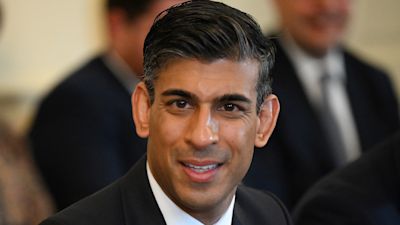Insight
Mind the cliff edge in Rishi Sunak’s cost of living help

Rishi Sunak's £15bn package of measures to ease the UK's cost-of-living pressures is - like much of what he did during the Covid-19 crisis - not very Tory. First, he's funding it by nicking Labour's plan to levy a windfall tax on oil and gas producers, at a rate of 25%. And he's chosen to make it more onerous than what Labour was proposing, and to leave it in place till the end of 2025. The tax is expected to raise around £5bn this year, a couple of billion more than what Labour's would have reaped.
He's also going further than Labour in another way, by "urgently" reviewing whether the windfall tax - what he euphemistically called a "targeted energy profits levy" - should be extended to companies that generate power from nuclear or wind.
They are enjoying exceptionally large profits because the benchmark price for the power they sell is determined by the inflated price of gas. This additional windfall tax would apply only to those generators whose supply deals are not based on so-called contracts for difference that put a ceiling on the profits they can garner. Even so, both the announced windfall tax and the one that may follow have outraged some Tory MPs and ministers, which see them as anti-capitalist and inimical to the imperative of encouraging investment in new generating capacity.
Want a quick and expert briefing on the biggest news stories? Listen to our latest podcasts to find out What You Need To Know
If, for example, international investors were to react by investing less in the UK, that would damage the supply side of the economy - and Mr Sunak explicitly said in the Commons today that expanding the supply side, especially in energy, was part of a three pronged strategy to reduce surging inflation. That said, the chancellor has announced generous tax allowances for investment in oil and gas schemes - what he calls super deductions - which would see 91% of the cost of the investments recouped from tax credits. As for the £15bn package of support for struggling households, it includes a new £200 gift to all energy customers, a lump sum of £650 (payable in two tranches) to more than eight million households on assorted benefits, plus £300 to all pensioners, and £150 to those on disability benefits. Of this £15bn, two thirds of it will be funded by borrowing - which again would not be seen as supremely Tory - and 79% of it will go to what the chancellor calls vulnerable households (namely to those on means-tested benefits, to those receiving disability benefits and all pensioners).
With the typical annual energy bill increasing £1500 between March and October, this represents significant help for the poorest and most vulnerable.
For example, a low income household that includes a pensioner and a disabled person would receive one-off payments totaling £1300 - and that rises to the full £1500 when the £200 contribution to energy bills announced in March is included (and at the risk of mangling your brain, that £200 was a loan in March but was today converted into a gift or grant). It is clear, therefore, that these measures will help many households in dire circumstances. But some £4bn of the £15bn is going to those not regarded by the chancellor as vulnerable.
And as is inevitable when the payments are through substantial lump sums, those earning just above the means tested thresholds will feel very hard done by, because they won't receive the £650.
There is sheer cliff edge between those being helped by the chancellor and those who don't qualify. As for other risks, one is that the Bank of England will see the package as more of a stimulus than it expected, and will push up interest rates more than would otherwise have been the case - which would hurt millions of households, businesses and even the Treasury, whose interest bill would increase significantly. Finally, it is important to remember that the chancellor has simply offset some of the rise in costs we all face.
Prices are rising fast on pretty much everything we consume and need to live, well beyond energy. Today, Mr Sunak has reduced the number of households facing catastrophic hardship, but pretty much everyone in the UK is still going to be poorer - and in some cases a lot poorer - for at least a year, and probably longer.